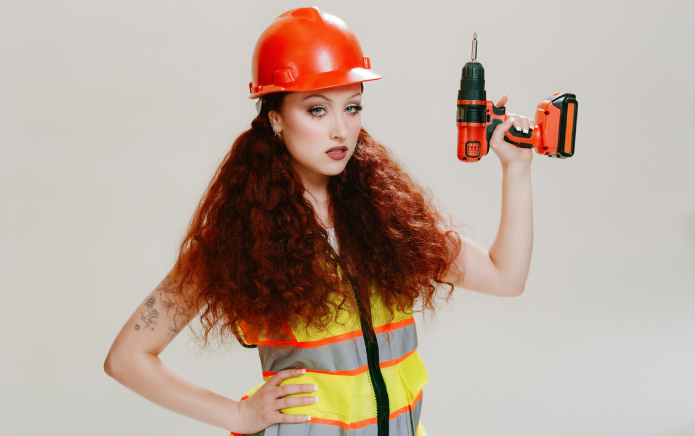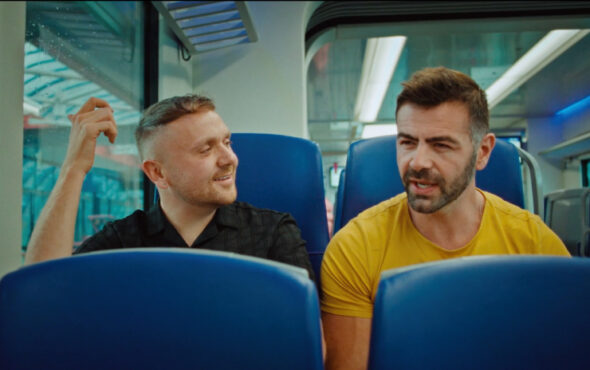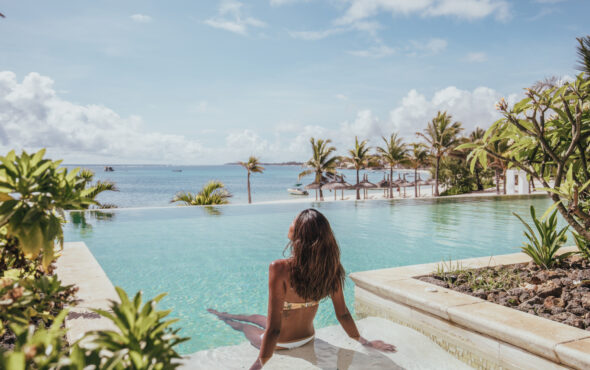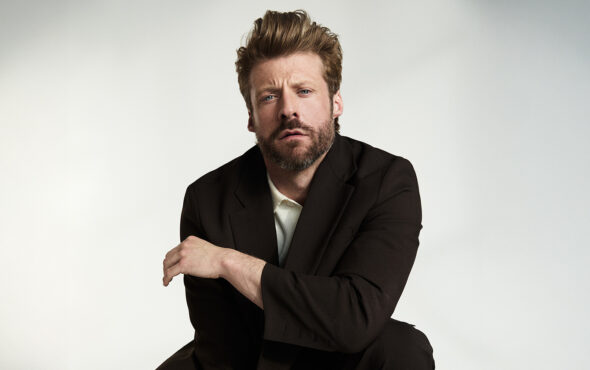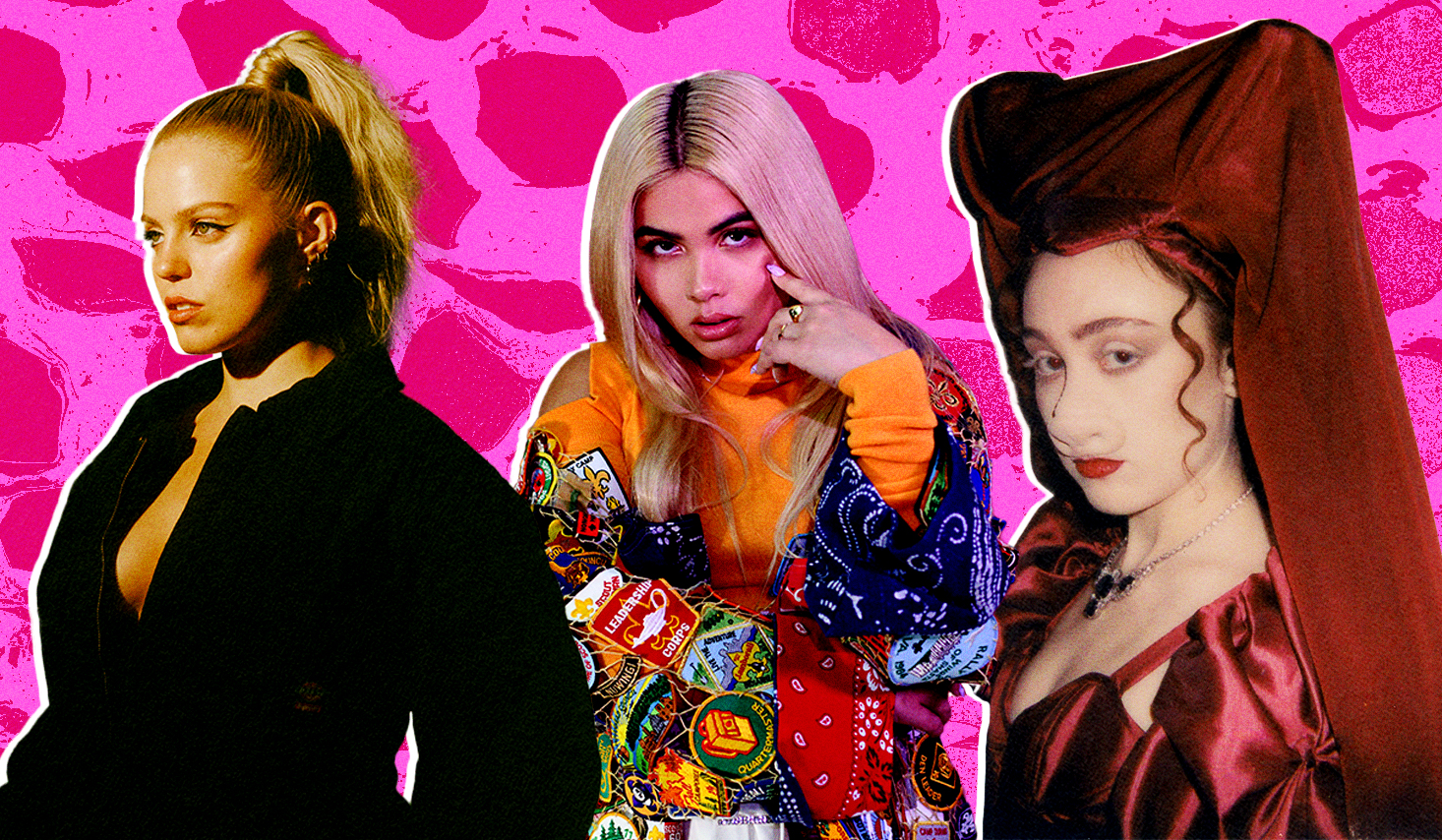
I don’t remember the first time I listened to YouTube singer/songwriter Dodie’s song ‘she‘, but what I do remember is the hundreds of times I listened to the song throughout my teenage years.
As I’m writing this, I’m listening to ‘she’ for the first time in years. Almost immediately, the familiar chords and voice make me tear up. Thinking about how many times I listened to this song when I was really struggling with feelings around my sexuality shows me how far I have come to be as confident in myself as I am now.
Dodie came out as bisexual in a YouTube video in 2016, when I was already a huge fan. She was probably the first representation of bisexuality I had ever seen. I also have clear memories of listening to Clairo’s debut album Immunity when it came out in 2019, when I was 17. Clairo is also bisexual and was a similarly important figure for me to see as a confused teenager.
I don’t doubt that both Dodie and Clairo are two of the main reasons I was able to come out as bisexual at all, which really shows how important representation is in media and specifically in a highly accessible media of music.
Recently, however, I’ve felt like the label bisexual wasn’t quite right for me. I’ve been struggling with these confused feelings for over a year, but seeing lesbian artists gain such visibility in the last few months and years has helped me to recognise and identify my own feelings.
Reneé Rapp, who starred in this year’s new Mean Girls film, came out as lesbian at the start of this year having previously identified as bisexual. I was already a fan of hers, but her second coming out made me feel so represented. As I had been having conflicting and complicated feelings about my own sexuality, seeing someone I already admired follow a path very similar to my own provided me with a huge amount of comfort and self-confidence.
I don’t know what scared me so much about coming out as a lesbian, when I found coming out as bisexual so easy, but I found it hard to say it out loud, even when I had admitted it to myself. But Rapp’s confidence in her sexuality and her huge popularity, as well as the positive reactions from her fans, gave me the confidence I needed to start saying I was a lesbian.
There’s a wealth of queer artists out there at the moment, providing much needed representation for young LGBTQIA+ people like me. This year’s Coachella festival was a case in point, even nicknamed “Gaychella” across social media in a nod to the array of LGBTQIA+ artists performing.
Rapp, for example, performed on a set that featured two giant sets of scissors, and was introduced by the cast of The L Word. Billie Eilish also performed, as well as rising star Chappell Roan, who are both queer and have written sapphic music. Roan’s latest song ‘Good Luck, Babe!‘ discusses the common queer experience of compulsory heterosexuality, but Roan also recently opened for Olivia Rodrigo’s Guts Tour, showing how queer artists and music are becoming more mainstream than ever before.
Other lesbian artists have had a huge impact on me. Hayley Kiyoko, recognised as a trailblazer and nicknamed “Lesbian Jesus”, has been so important to lesbian visibility and to the community. Kiyoko came out in the 2015 hit song ‘Girls Like Girls‘ which became a lesbian anthem and is still probably one of the first explicitly lesbian songs most people will think of. Zolita was one of the first lesbian artists I became aware of, and I vividly remember watching her music videos over and over again.
Being able to see lesbians across different music genres is really special to me. Listening to more lesbian artists has made me so much more comfortable and proud of my sexuality.
It’s so important to be able to see yourself in the music you’re listening to. It has such a big impact, and is so valuable to me, especially when lesbian representation isn’t always easy to come by. I can honestly say I wouldn’t be where I am now, finally feeling a sense of confidence in my identity, without being able to listen to lesbian artists and people who have similar experiences to me that I can relate to.
Ione volunteers as an ambassador for Just Like Us, the LGBT+ young people’s charity. LGBT+ and aged 18 to 25? Sign up here!
